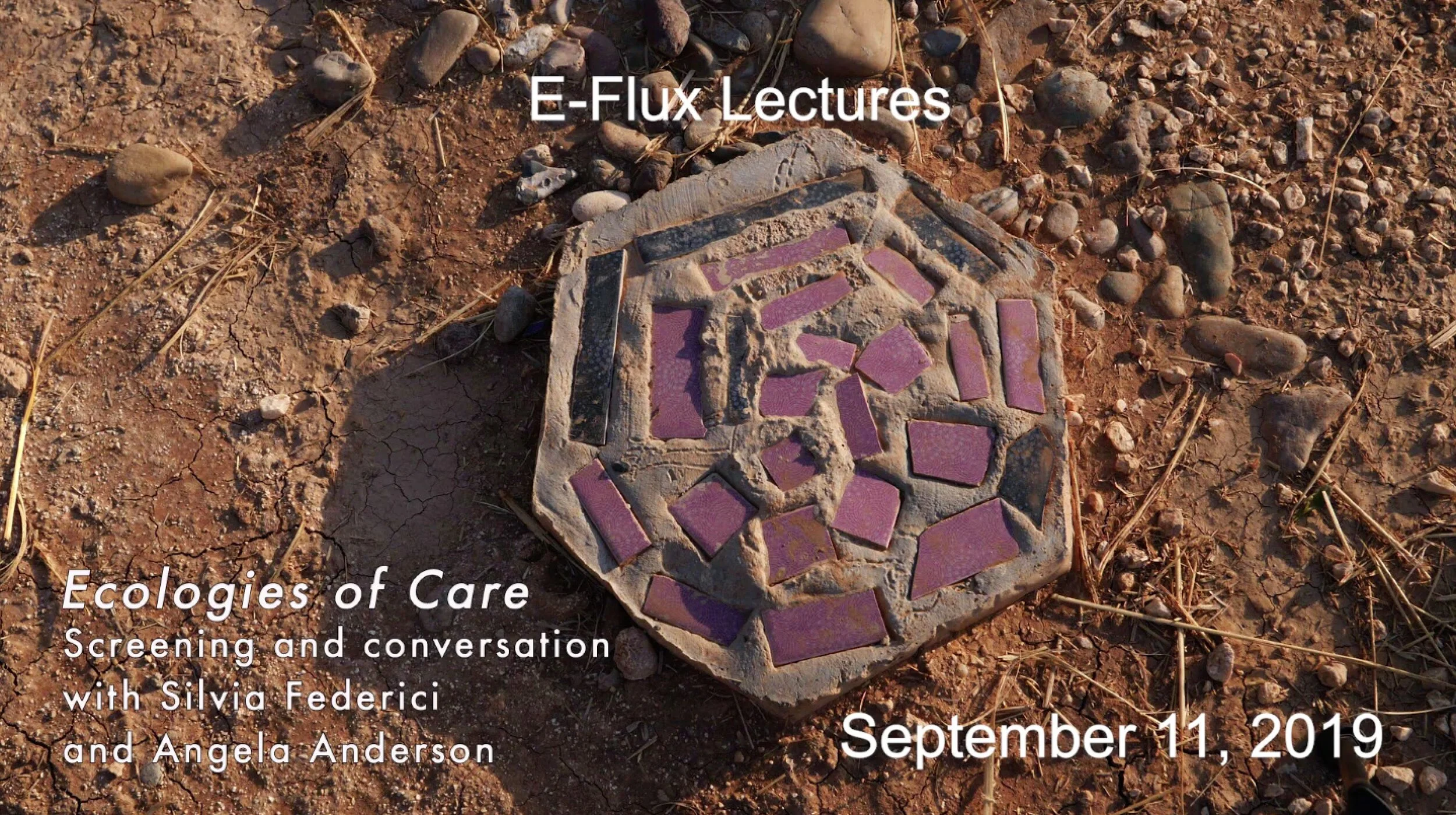“Ecologies of Care: Screening and conversation with Silvia Federici and Angela Anderson” from Sep 11, 2019 @ eflux in NYC https://www.e-flux.com/video/291573/ecologies-of-care-screening-and-conversation-with-silvia-federici-and-angela-anderson/
On Wednesday, September 11, at 7pm, e-flux presented a screening of Angela Anderson’s new film, Three (or more) Ecologies: A Feminist Articulation of Eco-intersectionality – Part I: For the World to Live, Patriarchy Must Die. Following the screening, the filmmaker was in conversation with activist and feminist writer Silvia Federici.
The way one relates to land, water, and other so-called natural resources is reflected in the way goods, relations, and affinities are produced. Economic models that devalue and obstruct care produce the subjectivities that drive the current climate crisis and the ongoing disruption/destruction of ecosystems, displacing both humans and other-than humans, with blatant disregard for the embodied knowledge these ecosystems cultivate and nourish. In her new video work Three (or more) Ecologies: A Feminist Articulation of Eco-intersectionality – Part I: For the World to Live, Patriarchy Must Die, Angela Anderson brings together two geographically disparate locations on the globe: North Dakota and Rojava (Northern Syria). The film contrasts the highly industrial/technical nature of the destructive fracking industry in North Dakota’s Bakken region with a women’s autonomous village project in Rojava, emphasizing the urgent need for a societal shift towards relations of empathy and care.
Following the screening will be a conversation with the eminent feminist thinker and activist Silvia Federici on the topics of care, eco-intersectional empathy, and the necessity of redefining value in the face of impending ecological collapse.
Silvia Federici is a feminist writer, teacher, and activist. In 1972, she co-founded the International Feminist Collective, which launched the Wages for Housework campaign. She worked as a teacher in Nigeria for many years, and co-founded the Committee for Academic Freedom for Africa. She has written several influential works on women’s history, feminist theory, and political philosophy, including Caliban and the Witch: Women, the Body and Primitive Accumulation (2004); Revolution at Point Zero (2012); Witches, Witch-Hunting, and Women (2018); and Re-enchanting the World: Feminism and the Politics of the Common (2018). She is Professor Emerita at Hofstra University.
